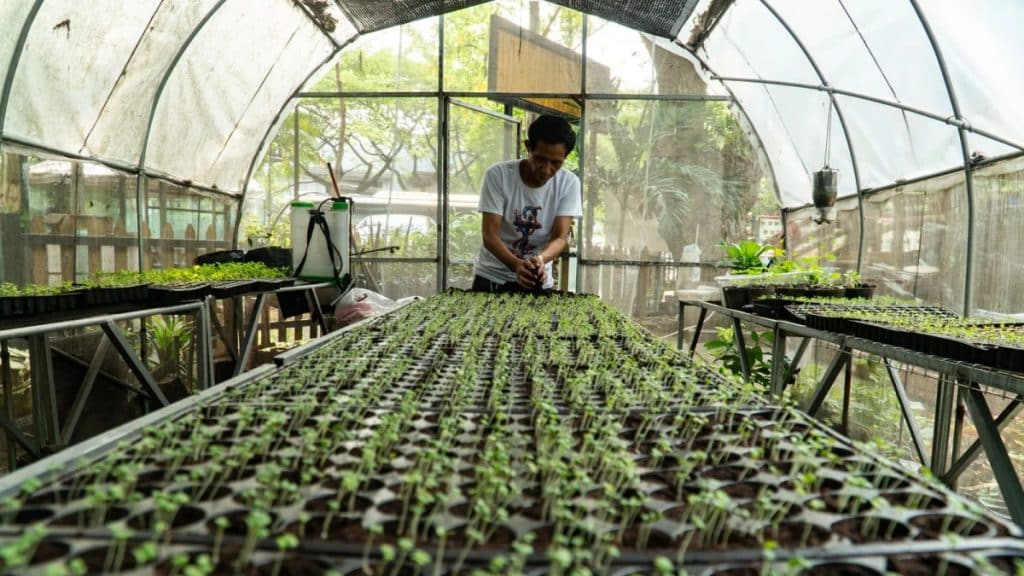Sustainable agriculture is no longer a buzzword; it is a necessity in today’s rapidly changing world. As the global population grows and the impacts of climate change become more pronounced, the need for environmentally friendly and economically viable farming practices has never been greater. Organizations like Formagro are at the forefront of this movement, empowering farmers and communities to adopt sustainable agricultural practices that address food insecurity, environmental degradation, and economic instability.
This article explores the importance of sustainable agriculture, the critical role of organizations like Formagro, and how such initiatives are shaping the future of global food systems.
What is Sustainable Agriculture?
Sustainable agriculture is an approach to farming that meets the needs of the present without compromising the ability of future generations to meet their own needs. It focuses on three core principles:
- Environmental Health: Preserving natural resources, reducing chemical usage, and protecting biodiversity.
- Economic Profitability: Ensuring that farming remains a viable livelihood for farmers.
- Social Equity: Supporting fair labor practices and community well-being.
Key practices in sustainable agriculture include crop rotation, conservation tillage, integrated pest management, and agroforestry. These methods help maintain soil fertility, reduce water consumption, and minimize environmental impact.
The Challenges Facing Global Agriculture
Population Growth and Food Demand
The world’s population is projected to reach 10 billion by 2050, significantly increasing the demand for food. Traditional farming methods, which often rely on heavy chemical inputs and extensive land use, are unsustainable in meeting this demand.
Climate Change
Agriculture is both a contributor to and a victim of climate change. Practices such as deforestation, overuse of chemical fertilizers, and methane emissions from livestock exacerbate global warming. Conversely, farmers face challenges like unpredictable weather patterns, droughts, and floods, which threaten crop yields.
Depleting Natural Resources
Overfarming, deforestation, and excessive use of synthetic inputs have led to soil degradation, water scarcity, and loss of biodiversity. These issues highlight the urgent need for sustainable practices to protect the planet’s natural resources.
How Formagro is Transforming Agriculture
Formagro is a pioneering organization dedicated to fostering sustainable agricultural practices. By focusing on local empowerment and innovative solutions, Formagro has become a beacon of hope for communities struggling with food insecurity and environmental challenges.
Training and Education
Formagro offers training programs designed to equip farmers with the knowledge and skills needed to implement sustainable practices. These programs focus on:
- Soil Health Management: Teaching farmers how to enhance soil fertility through organic composting and crop rotation.
- Water Conservation: Promoting efficient irrigation techniques such as drip irrigation and rainwater harvesting.
- Agroforestry: Encouraging the integration of trees and shrubs into agricultural systems to improve biodiversity and carbon sequestration.
Promoting Agroecology
Agroecology is a holistic approach to farming that integrates ecological principles into agricultural practices. Formagro supports agroecology by helping farmers adopt methods that prioritize environmental health, such as reducing chemical inputs, using natural pest control, and planting diverse crops.
Strengthening Local Economies
Formagro empowers farmers to become self-reliant by providing access to markets, resources, and financial support. By fostering local economic growth, the organization helps create resilient communities that can thrive in the face of global challenges.
Benefits of Sustainable Agriculture
Environmental Benefits
- Soil Preservation: Sustainable practices like crop rotation and conservation tillage improve soil structure and fertility.
- Water Conservation: Efficient irrigation systems reduce water waste and protect freshwater resources.
- Biodiversity: Agroforestry and diverse cropping systems support wildlife and maintain ecological balance.
Economic Advantages
- Increased Productivity: Healthy soils and efficient resource use lead to higher yields over the long term.
- Cost Savings: Reduced reliance on synthetic inputs lowers production costs.
- Market Opportunities: Sustainable products often fetch premium prices in markets that value eco-friendly practices.
Social Impact
- Food Security: Sustainable farming ensures a steady supply of nutritious food for growing populations.
- Community Resilience: Empowered farmers contribute to stronger, more self-reliant communities.
- Fair Labor Practices: Sustainable systems prioritize the well-being of workers and their families.
Real-Life Impact: Success Stories from Formagro
Formagro’s initiatives have transformed countless lives by helping farmers transition to sustainable practices. In regions facing severe drought, farmers trained by Formagro have successfully implemented water-saving techniques that have doubled their crop yields. Similarly, agroforestry projects have rejuvenated degraded lands, turning barren fields into thriving ecosystems.
Frequently Asked Questions
Why is sustainable agriculture important?
Sustainable agriculture is essential for preserving the environment, ensuring food security, and supporting economic growth. It addresses critical challenges such as climate change, resource depletion, and population growth.
How does Formagro support sustainable agriculture?
Formagro provides training, resources, and financial assistance to farmers, enabling them to adopt eco-friendly practices, improve productivity, and strengthen their communities.
Can small-scale farmers benefit from sustainable practices?
Absolutely! Many sustainable practices, such as composting, crop rotation, and rainwater harvesting, are cost-effective and easy to implement on small farms.
Conclusion
Sustainable agriculture is the foundation of a secure and prosperous future. Prioritizing environmental health, economic viability, and social equity addresses the pressing challenges of our time. Organizations like Formagro are vital in driving this transformation, empowering farmers to adopt sustainable practices and build resilient communities.
The journey toward sustainable agriculture is a collective effort. Governments, businesses, and individuals must collaborate to support initiatives like Formagro and ensure a sustainable food system for generations to come.
Would you like to enhance this article with backlinks or a custom image to further engage readers?
